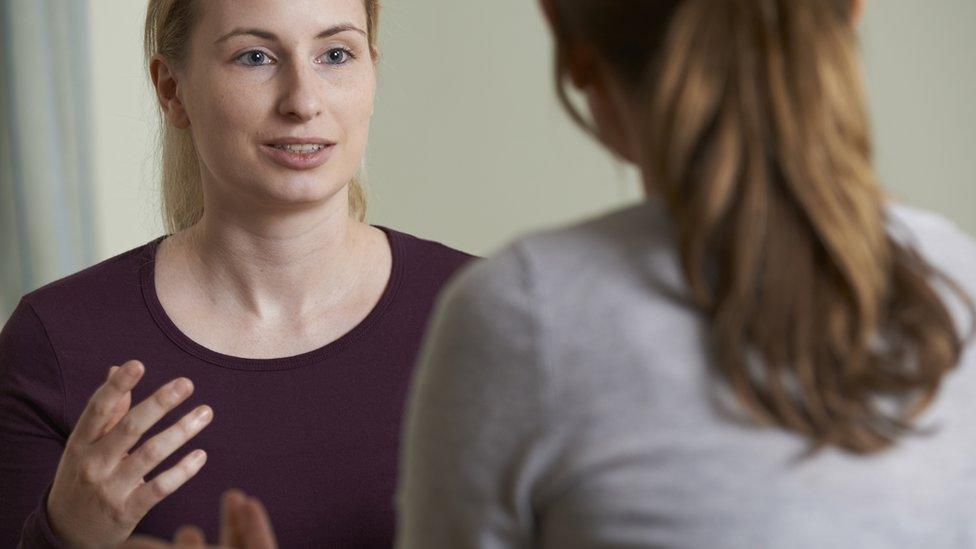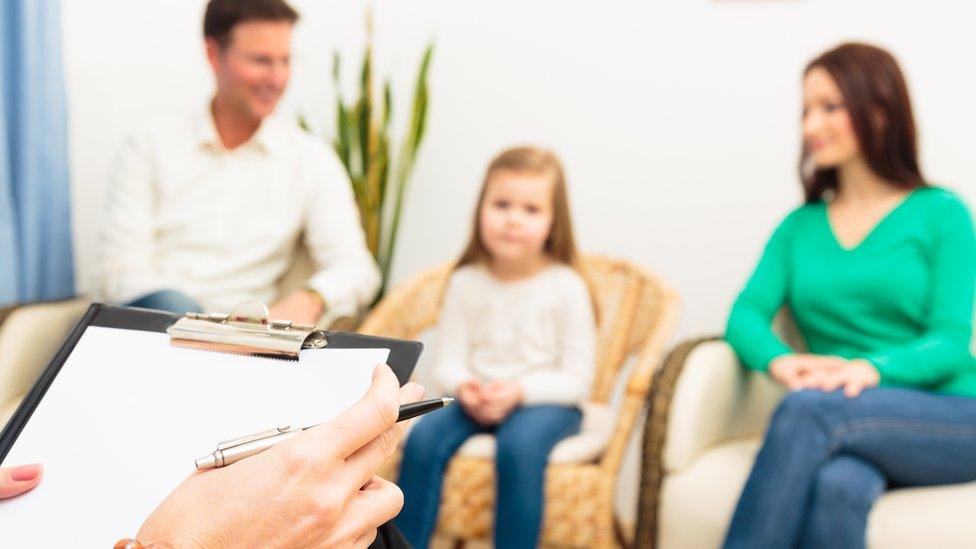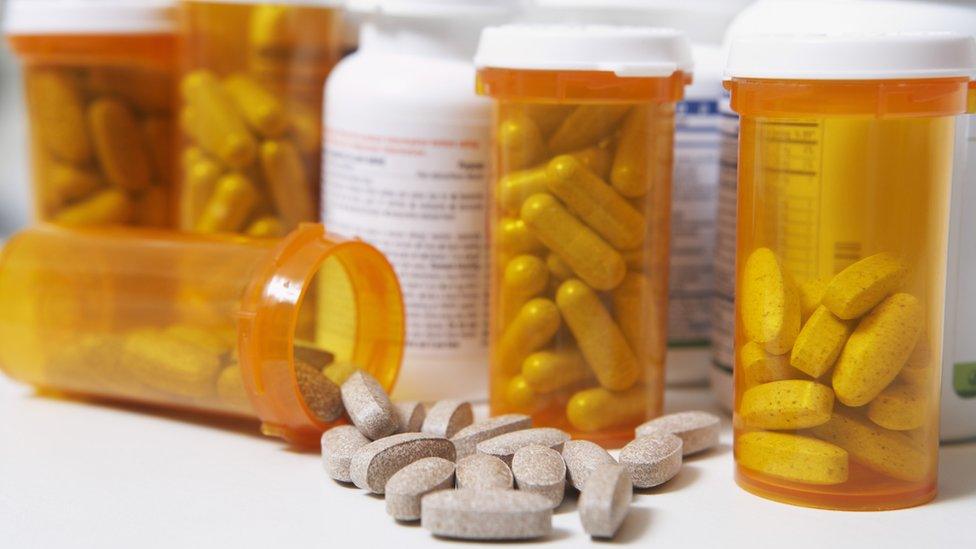Antidepressant use rises in under-13s
- Published
- comments

Four times as many children under 13 were prescribed antidepressants last year as just seven years ago, figures obtained by BBC Scotland show.
Last year 252 children aged 12 and under were given antidepressants while in 2009/10 it was 57.
During the same period the numbers for all children under 18 doubled from 2,748 in 2009/10 to 5,572 last year.
The Scottish government said the increase reflected a rise in the number of young people seeking help.
There are no official guidelines for the treatment of depression in children and adolescents in Scotland.
However, there are NICE (National Institute for Health and Care Excellence) guidelines for England and Wales that doctors can refer to and be guided by.
NICE says antidepressants should be given to teenagers and children in conjunction with psychological talking therapies.
Fluoxetine, which is usually sold under the trade name Prozac, is the only drug recommended for under 18s "as this is the only antidepressant for which clinical trial evidence shows the benefits outweigh the risks".

The antidepressants are only to be used along with talking therapies
The statistics obtained by the BBC from NHS Scotland's Information Services Division show that last year 45% of the under-18s were prescribed fluoxetine.
They also show that 41% of them were prescribed sertraline and 13% citalopram, which are the recommended second-line treatments if fluoxetine is "not tolerated".
Ten adolescents, aged 13-17, were prescribed paroxetine despite NICE guidelines saying "paroxetine should not be used for the treatment of depression in children and young people".
Dr Elaine Lockhart, chairman of the child and adolescent faculty at the Royal College of Psychiatrists in Scotland, said: "Antidepressants are prescribed for a range of conditions, including depression, anxiety, OCD and even for migraines and pain in some cases.
"This data does not indicate what the prescriptions are for, so it is impossible to ascertain precisely why prescriptions for antidepressants have increased.
"Without this information, it is wrong to assume that only depressed children have been prescribed medication."
Dr Lockhart added: "Antidepressants are an evidence-based treatment. When left untreated mental illnesses such as severe depression can cause extreme suffering, and stop children from enjoying their childhood."
She said antidepressants should only be used in under 18-year-olds on the recommendation of psychiatrists, who take the prescription of psychotropic medication "very seriously".
Dr Lockhart said they medications were used when anxiety or depressive symptoms had not responded adequately to psychological therapies alone.
They could also be used to reduce severe symptoms so the child or young person could then make use of psychological therapies, she said.
Seeking help
The Scottish government has said it believes doctors are using medication correctly.
Mental Health Minister Maureen Watt said: "Any prescribing is a clinical decision and there is good evidence that GPs assess and treat depression appropriately.
"We have worked hard to reduce the stigma faced by people with mental health problems. As this stigma declines we would expect more patients to seek help from their GPs for problems such as depression.
"People with mental illness should expect the same standard of care as people with physical illness and should receive medication if they need it."
The minister added: "The number of items prescribed has been increasing consistently over the last ten years.
"This reflects the substantial increase in demand for child and adolescent mental health services."

'The dose I was on was wrong and I wasn't made aware of the risks'

Untreated mental illnesses such as severe depression can cause extreme suffering
Julie says her depression was first picked up when she was nine or 10 after her parents became concerned about her mental health.
She did not receive antidepressants at that young age and the treatment "was mostly speaking to people and trying to get things off my chest".
For Julie, which is not her real name, talking therapies did not work.
"Things just got worse," she says.
"I didn't find any help in talking to people. They didn't accept there were some things I didn't want to talk about. They were very pushy trying to find out why I was upset."
'Destructive behaviour'
When she was 14 Julie went to the doctor and was prescribed the antidepressant sertraline.
"At first I thought it helped," she says.
"I have never had very high self-esteem and I noticed very quickly that it helped with that.
"But after a couple of months I started noticing that I was maybe overconfident and a bit cocky, obnoxious, rude and inconsiderate towards other people. I was different to my usual self on it."
At first it was just mood swings but a few months on from that it turned into "destructive behaviour", which got her into trouble with the police.
"That wasn't me," she says
"The person I was when I was on that drug was someone unrecognisable to me and my family.
"I was a horrible person when I was on that medication. I had a lot of problems at the time but that just wasn't me. I've not been like that since or before it."
Intense emotions
Julie says the dose of her medication was increased to deal with the symptoms but the side effects got worse and her behaviour became more erratic.
When she stopped taking the drugs, she says, she returned to herself within weeks.
"Very quickly the bad behaviour stopped, the intense emotions stopped and the anger went away.
"I'm 100% positive those problems started when I started taking Sertraline. Once I had taken myself off it those problems went away in a short space of time."
Julie is now 19 and looking back she says the way the drug was prescribed and monitored was wrong.
"The dose I was on was wrong and I wasn't made aware of the risks," she says.
"I think if someone is one it they should be checked on very frequently. It shouldn't just be left to them to deal with."
- Published6 June 2017

- Published13 October 2015
